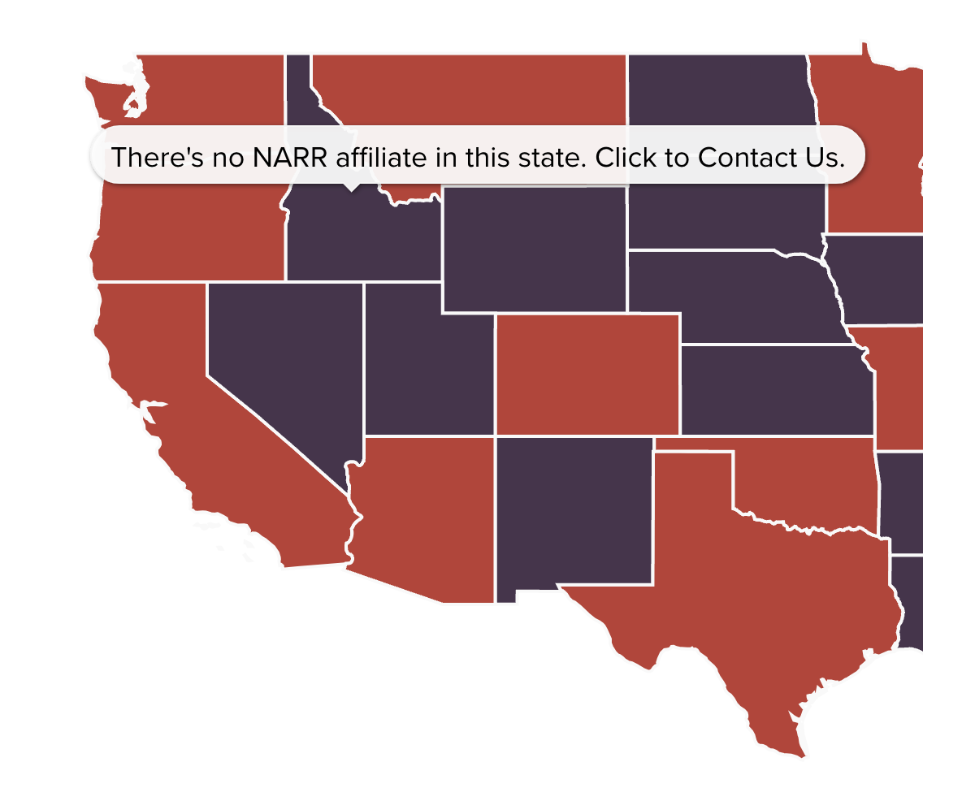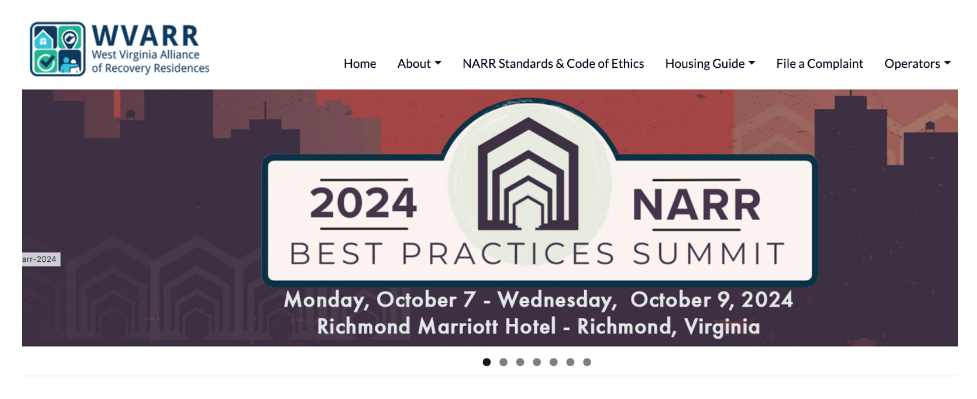Did you know that Nebraska and Idaho have no National Association of Recovery Residences (NARR) affiliate organization?
Or that West Virginia just revolutionized the way it regulates sober living homes in 2024?
It’s true. Read on for updates on the sober living home communities in these states.
Nebraska has no NARR affiliate despite rising discrimination against sober living homes and people with SUD
Although Nebraska struggles with discrimination against sober living home residences and operators, Nebraska still does not have a National Association of Recovery Residences (NARR) affiliate to represent operators in the state. Operators in Nebraska do not yet appear to be working towards establishing a NARR affiliate, but if you’re interested in getting the process started, we recommend reaching out to NARR to learn more about what it takes to be considered an emerging affiliate.
Presently, Nebraska sober living homes don’t face mandatory certification, and there doesn’t appear to be much movement towards increased regulation in this state yet, despite rising regulations throughout the country for sober living homes.
In Nebraska, sober living homes are differentiated from care homes for people who require assistance with everyday living, such as care homes for the elderly or for the intellectually impaired. Sober living homes don’t provide the daily, hands-on care that care homes do, so they are considered to be “self-run programs.” “Self-run programs” don’t require certification to operate in Nebraska.
For more on behavioral health business and sober living in Nebraska, see:
Your Questions About Opening a Sober Living Home in Nebraska, Answered
There’s still no NARR affiliate or mandatory certifications for sober living homes in Idaho
Idaho is another state that has no NARR (National Association of Recovery Residences) affiliate representing sober living homes collectively. In Idaho, sober living homes are funded through BPA Health, which is the state contractor that oversees behavioral healthcare services for the state’s Medicaid program.
Idaho doesn’t keep count of the number of sober living homes in operation in the state because they aren’t regulated by any official body nor are they subjected to certification requirements. However, in 2017, one news article reported that there were 17 different behavioral health businesses operating 47 different sober living homes, all of them accepting BPA Health dollars.
Recently, a neighborhood in West Boise banded together to resist construction of a shelter assisting people in risk of homelessness. During the comment period, one neighbor claimed that the West Boise neighborhood, in particular, is “saturated with sober living homes.”
Although there are no new restrictions and regulations placed on sober living home operators in Idaho, it is worth saying that In Idaho, only eight unrelated people can live in a typical single-family household according to the state’s laws. Some sober living homes in Idaho have been found to be in violation of this law, so would-be operators should take note of that restriction. Although it’s not sober living-specific, it applies to all homes that are zoned for single-family occupation, regardless of their status as sober living homes.
Best Kept Secrets to Opening an Addiction Treatment Center in Idaho
West Virginia strengthens sober living home regulations for all recovery residences in the state and WVARR continues recovery community advocacy
West Virginia, a small but mighty state, enjoys NARR representation by WVARR - the West Virginia Alliance of Recovery Residences. In West Virginia, the Office of Health and Facility Licensure and Certification, a governmental organization, works in partnership with WVARR to grant certification status to sober living homes.
Before 2024, West Virginia sober living homes were not technically required to seek certification. It was only when they wanted to accept state dollars (including Medicaid) or state-sponsored referrals that certification became mandatory for sober living homes. This is how optional certification requirements operate in many states, and this form of regulation is increasingly the norm for states that add sober living home regulations to their existing behavioral health certification programs.
However, this optional certification model changed in West Virginia in late 2024 with the passage of Senate Bill 475. Now, all sober living homes in West Virginia are required to register with the Office of Health Facility Licensure and Certification, and there are steep financial penalties for sober living homes that fail to do so. Additionally, the bill made it explicit that the state’s existing patient brokering laws apply to sober living homes in West Virginia, as well.
How to Open an Addiction Treatment Center in West Virginia
Your Questions About Opening a Sober Living Home in West Virginia - Answered
Treatment Facilities in West Virginia - Behave Health | Bridge
Managing a sober living home in Nebraska, Idaho, or West Virginia? Let us help.
Sober Living App is dedicated to doing one thing: making it easier - and more profitable - to operate sober living homes.
Our all-in-one app handles rent collection, admissions, property management, residents’ care coordination, community contacts, transportation details, calendars, staff, alumni and more - all from the convenience of your phone.
Claim your free trial today and see why more sober living homes prefer the Sober Living App.
NARR affiliates deserve smart management, too.
Discover if Behave Health’s new NARR Affiliate Management Platform (AMP) is right for your organization.





